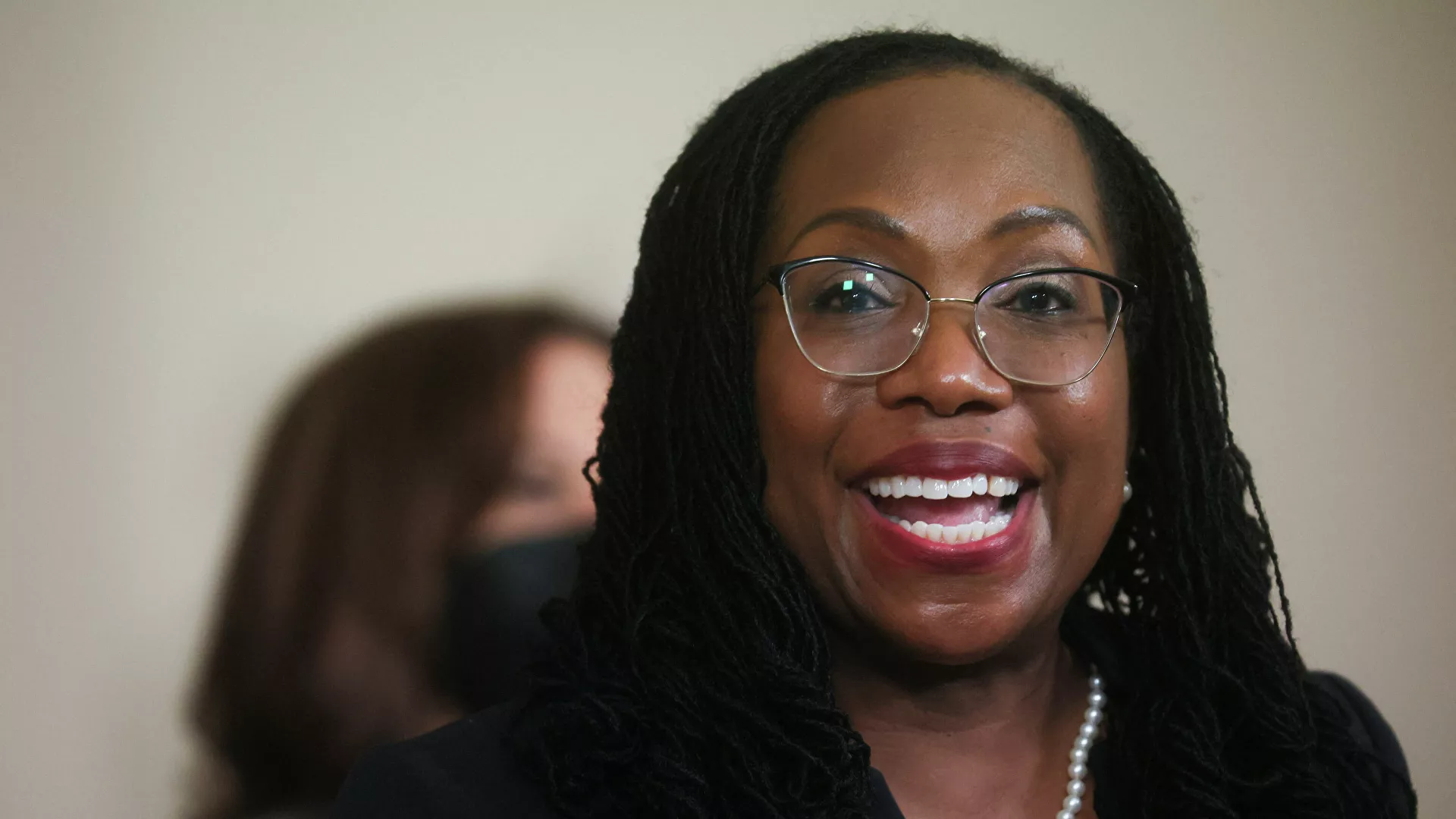Svetlana Ekimenko
March 23, 2022
-Sputnik
President Joe Biden’s Supreme Court nominee Ketanji Brown Jackson – who makes history as the first Black woman nominated for the court, had appeared before the Senate Judiciary Committee on Tuesday for the second day of her confirmation hearing
Supreme Court nominee Ketanji Brown Jackson refused to define the word “woman” during the second day of her confirmation hearing, conducted by the US Senate’s Judiciary Committee on Tuesday.
Senator Marsha Blackburn (R-Tenn.) had resorted to a quote from late Supreme Court judge Ruth Bader Ginsburg as she pressed Jackson on sex and gender issues, saying:
“Physical differences between men and women are enduring. The two sexes are not fungible. A community made up exclusively of one sex is different from a community composed of both… Do you agree with Justice Ginsburg that there are physical differences between men and women that are enduring?”
However, in response, Jackson claimed she had never heard the quote in question.
“Can you define the word ‘woman’?” she was then asked.
The first Black woman being nominated for the court fired back with the question: “Can I provide a definition?” Only to then quip, “No, I can’t… I’m not a biologist.”
Blackburn slammed the fact that Jackson failed to provide a “straight answer about something as fundamental as what a woman is”. According to the senator, this was a glaring example of “the dangers of the kind of progressive education that we are hearing about.”
At this point in the grilling, Blackburn referenced the recent victory of biological male swimmer Lia Thomas in the NCAA championships against female competitors.
“Just last week, an entire generation of young girls watched as our taxpayer-funded institutions permitted a biological man to compete [against] and beat a biological woman in the NCAA women’s swimming championships,” said the senator, asking:
“What message do you think this sends to girls?”




